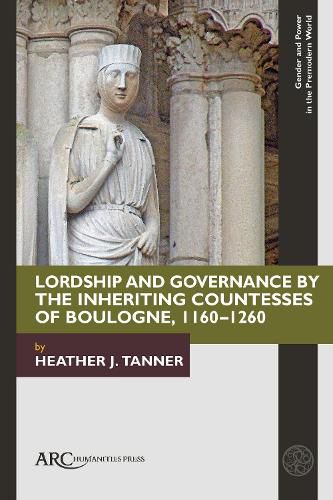Readings Newsletter
Become a Readings Member to make your shopping experience even easier.
Sign in or sign up for free!
You’re not far away from qualifying for FREE standard shipping within Australia
You’ve qualified for FREE standard shipping within Australia
The cart is loading…






Traditional scholarship argues that the changes fostered by the growth of royal power and feudalism in Western Europe directly impacted women's public power and authority in the later twelfth and thirteenth centuries. Focusing on the inheriting countesses of Boulogne (1160-1260) and their neighbours in northern France, this monograph investigates the influence of the rise of centralized government on elite women's power. This chronological and comparative analysis highlights successive countesses' governance of inherited lands, the roles they played in their spouses' lands and in political affairs outside their inherited lands, along with crucial assessments of the social identity and status of the family. It challenges the established interpretation and shows that the establishment of feudalism and the elaboration of bureaucracy did not curtail elite women's access to or exercise of lordship to any significant degree.
$9.00 standard shipping within Australia
FREE standard shipping within Australia for orders over $100.00
Express & International shipping calculated at checkout
Traditional scholarship argues that the changes fostered by the growth of royal power and feudalism in Western Europe directly impacted women's public power and authority in the later twelfth and thirteenth centuries. Focusing on the inheriting countesses of Boulogne (1160-1260) and their neighbours in northern France, this monograph investigates the influence of the rise of centralized government on elite women's power. This chronological and comparative analysis highlights successive countesses' governance of inherited lands, the roles they played in their spouses' lands and in political affairs outside their inherited lands, along with crucial assessments of the social identity and status of the family. It challenges the established interpretation and shows that the establishment of feudalism and the elaboration of bureaucracy did not curtail elite women's access to or exercise of lordship to any significant degree.